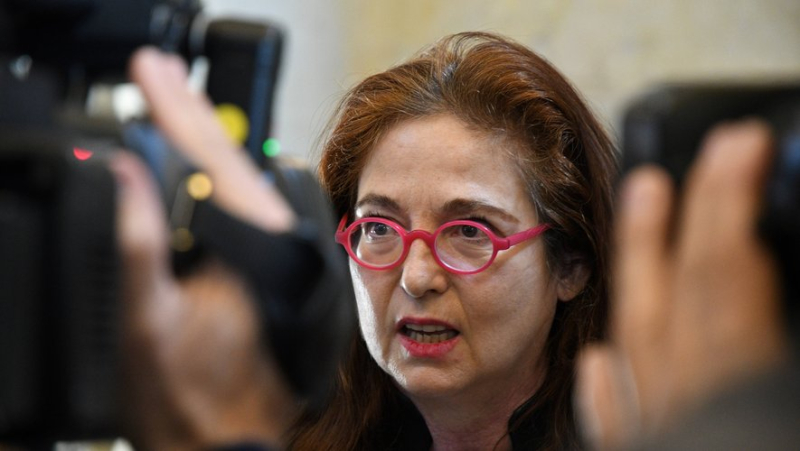Terrorism: “Justice will pass, but the pain of the victims will not go away”, believes Montpellier lawyer Catherine Szwarc

L'avocate montpelliéraine Catherine Szwarc est spécialisée dans la défense des victimes. MIDI LIBRE – Jean-Michel Mart
On this day of tribute to the victims of terrorism, Me Catherine Szwarc, from Montpellier, brings her perspective on the trials in which she participated, including the current one of the Strasbourg attack.
The trial of the Strasbourg attack, underway in Paris, is the last judicial sequence sanctioning the wave of attacks which affected France between 2015 and 2019. The & #39;Montpellier lawyer Catherine Szwarc participates, on the bench of civil parties.
How do you view this series of terrorism trials ?
First of all, I hope that this trial of the Strasbourg attack will be the last in this long series, and that justice will not have to intervene in new attacks. I draw up the observation of a certain inability of justice to reveal the truth in all its aspects, and to repair the victims. In all these trials, we always find a same frustration among the victims.
Yet justice deploys all available means?
Terrorism is an organized crime, whose members are very familiar with the tools of law enforcement. They are careful not to be located, to throw away their phone chips, and we always find a sort of compartmentalization between individuals, which complicates the work of investigators: a lot points are not clarified, which contributes to the frustration of the victims.
Here for Strasbourg, we don't know how the terrorist was able to enter with a handgun and a knife into the Christmas market, a place where we are on alert for any attack time, with check points, controls. For Nice, we understood that the Promenade des Anglais was not sufficiently secure, but for Strasbourg we do not know if he had accomplices . And for the victims, these questions are difficult. Not only is the main perpetrator dead, but the people in the box deny any terrorist act: some may believe that not all the culprits are there.
Added to this frustration is also fear. The victim is already suffering from post-traumatic stress, she is afraid that this will happen to her again, that accomplices commissioned by the terrorists will come to see her. Victims are people who will never close the legal case. Justice will pass, but their pain will not go away.
You criticize the absence of web radio for this trial, why ?
I find that the means of justice are not up to the challenge here. We built a courtroom at the Paris courthouse which cost the taxpayer 10 million euros, and which is equipped to have secure web radios, so that that the civil parties can hear the proceedings from home. This has not been implemented even though there are 220 civil parties here, who are from Strasbourg or Alsace and not at all from Paris. It is impossible for victims who are already weakened and scarred for life to follow such long trials on site in Paris when they too are privileged witnesses: ;they experienced the attack. They saw this terrorist walking through the streets of the city, aiming people in the head and shooting.
We are told that justice will be of better quality in matters of terrorism or public health if it is delivered in Paris, but this distances the citizen from his judge. Reflection must go in the direction of a rebalancing, whether it is web radio or retransmission in certain palaces. At the Mediator trial I represented 246 victims in Occitanie, and we had in first instance the deliberations broadcast live to the Montpellier Court of Appeal. For the Millas accident, with 120 civil parties, the Marseille court ordered web radio.
At the Trèbes trial, several defendants were acquitted. Aren't we trying to have trials at all costs, especially for the victims?
The verdict of the Trèbes trial naturally made some victims tremble. What they want above all is for responsibilities to be established, not for a new injustice to be created, especially since they were affected by the absolute injustice of a blind act of terrorism.
In all these trials, Charlie, Bataclan, Nice, Trèbes or Strasbourg, the main perpetrator is not judged, because he was neutralized, and to die as a martyr is part of this terrorist approach. But for an attack to be committed, there must be accomplices who provide money or weapons to these perpetrators who carry out ;nbsp; proselytism, who are sometimes listed as S or included in the wanted persons file. When we are in this situation, we need help, and without help, the attack is not possible.
I am not saying that these trials are only there for the victims, these trials are intended to convict those responsible. to reveal the truth. We do not emerge from a terrorist trial as we entered it, we will learn that some are less involved, and others much more: that is really the virtue of these trials.
I subscribe to read more




